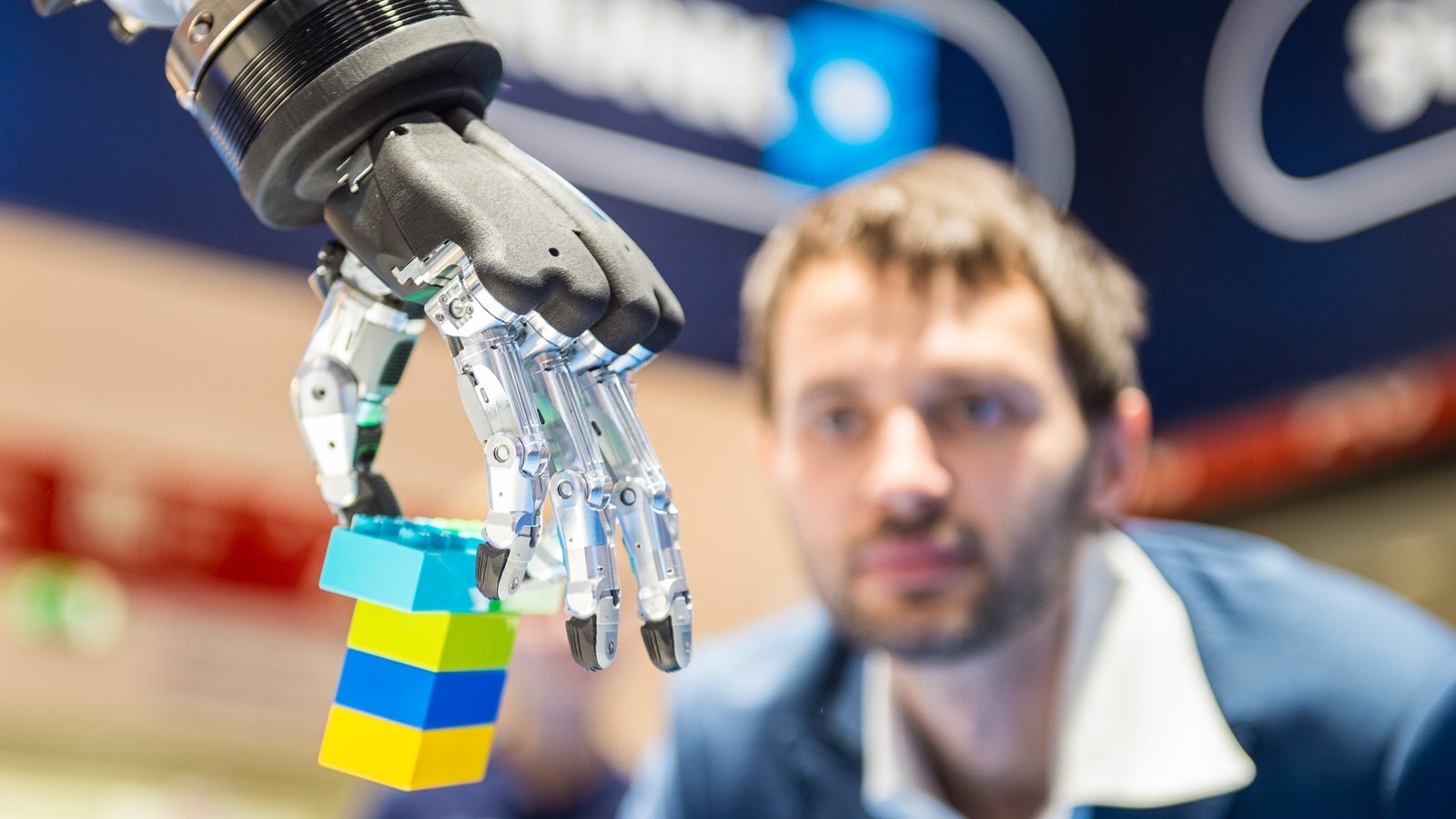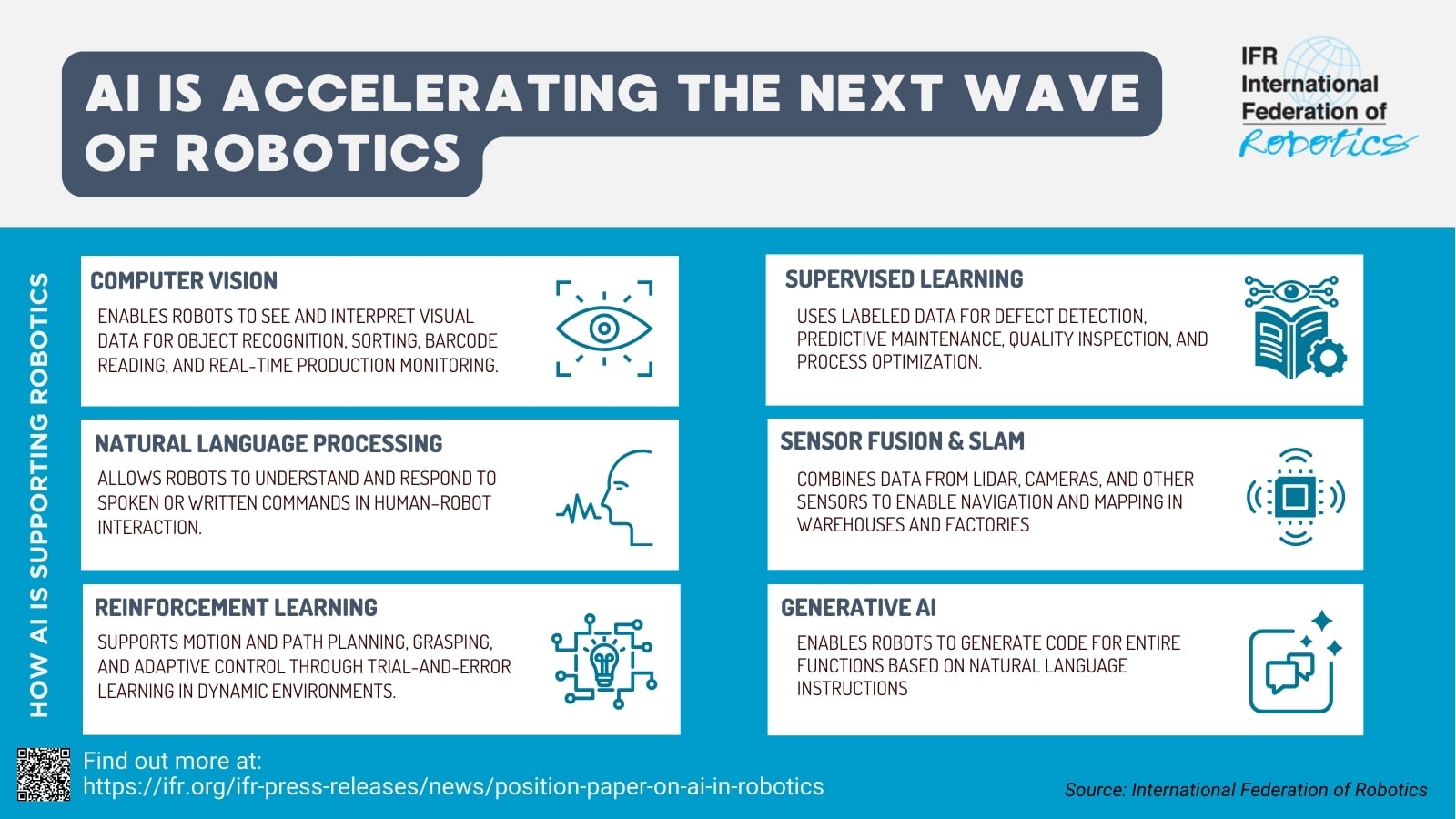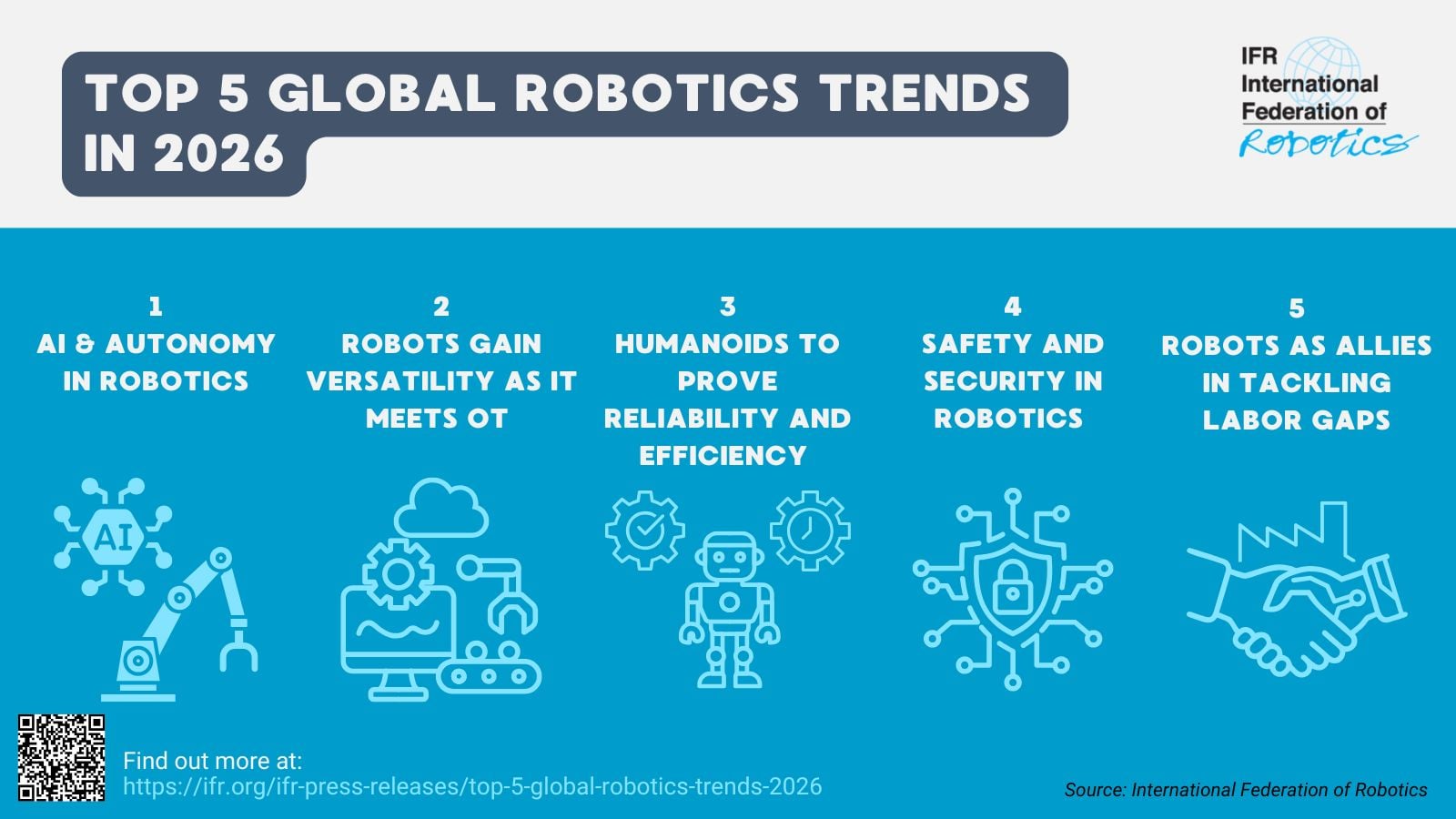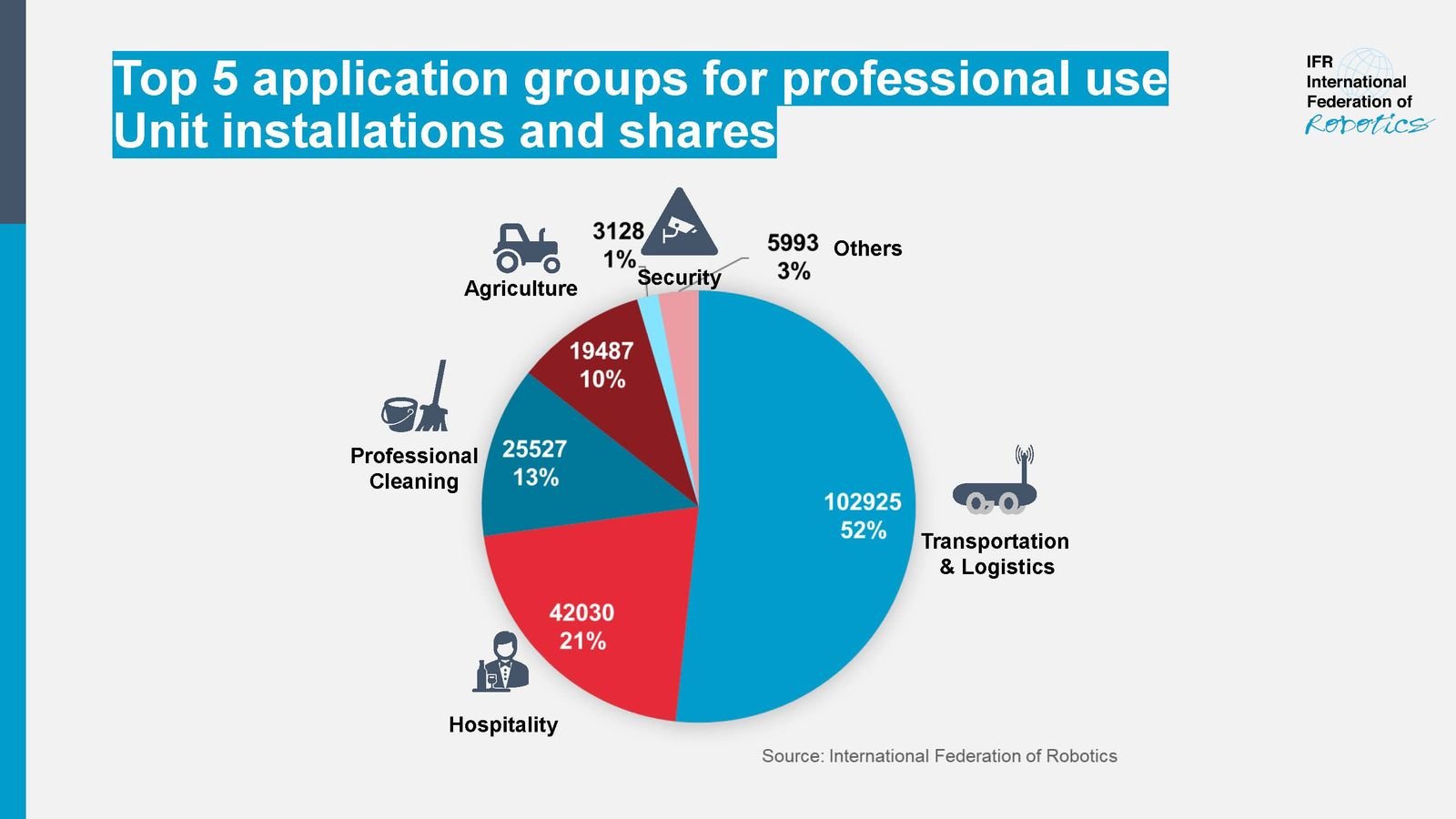
High demand for “Robotics skills” in post-Corona recovery
Education and training urgently needed for the automated economy of the future

© Messe München
“Governments and companies around the globe now need to focus on providing the right skills necessary to work with robots and intelligent automation systems,” says Milton Guerry, President of the International Federation of Robotics. “This is important to take maximum advantage of the opportunities that these technologies offer. The post-Corona recovery will further accelerate the deployment of robotics. Policies and strategies are important to help workforces make the transition to a more automated economy.”
World Economic Forum - Future world of work
“Very few countries are taking the bull by the horns when it comes to adapting education systems for the age of automation,” said Saadia Zahidi, in her role as Head of Education, Gender and Employment Initiatives at the World Economic Forum. “Those that are, have long had a clear focus on human capital development. Countries in northern Europe, as well as Singapore are probably running some of the most useful experiments for the future world of work.”
Economist Intelligence Unit - Automation Readiness Index
According to the “automation readiness index” published by The Economist Intelligence Unit (EIU), only four countries have already established mature education policies to deal with the challenges of an automated economy. South Korea is the category leader, followed by Estonia, Singapore and Germany. Countries like Japan, the US and France are developed and China was ranked as emerging. The EIU summed up the order of the day for governments: more study, multi-stakeholder dialogue and international knowledge sharing.
How to change hiring
On a company level, change hiring is an option as a short-term strategy: “If you can´t find the experienced people, you have to break down your hiring practices to skill sets and not titles,” advised Dr. Byron Clayton, as CEO of Advanced Robotics for Manufacturing (ARM) at the IFR Round Table in Chicago. “You have to hire more for potential. If you can´t find the person who is experienced then you have to find a person that has potential to learn that job.”
Education of the workforce
Robot suppliers support the education of the workforce with practice-oriented training. “Re-training the existing workforce is only a short-term measure. We must already start way earlier – curricula for schools and undergraduate education need to match the demand of the industry for the workforce of the future. Demand for technical and digital skills is increasing, but equally important are cognitive skills like problem-solving and critical thinking,” says Dr. Susanne Bieller, IFR´s General Secretary. “Economies must embrace automation and build the skills required to profit - otherwise they will be at a competitive disadvantage.”
December, 8–11, 2020 automatica - IFR Executive Round Table
The topic “Next Generation Workforce - Upskilling for Robotics” will be discussed by the IFR Executive Round Table on December 9 at the trade fair for smart automation and robotics “automatica” in Munich.
IFR positioning paper
Robots and the Workplace of the Future.
Video
IFR Video FACTS about ROBOTS – worldwide
Further downloads
A high resolution picture is ready for download. The press release is also available in other languages. You will find a German, Spanish, French, Korean and Chinese version below. The translation of the Japanese version is in progress.
- automatica education high resolution picture © Messe München (3.72MB)
- IFR Pressemeldung Robot Jobs Skills - deutsch (137KB)
- IFR Communiqué de presse Compétences professionnelles pour les robots en français (167KB)
- IFR Comunicado de Prensa Habilidades Laborales para Robots en Español (166KB)
- IFR新闻发布。科罗娜飓风过后的恢复工作对 "机器人技术 "的需求量很大。Chinese language (443KB)
- IFR press release - Robot Jobs Skills - Korean language (230KB)
- IFRプレスリリース - コロナ後の復興に向けた「ロボティクススキル」の需要が高い Japanese language (249KB)





